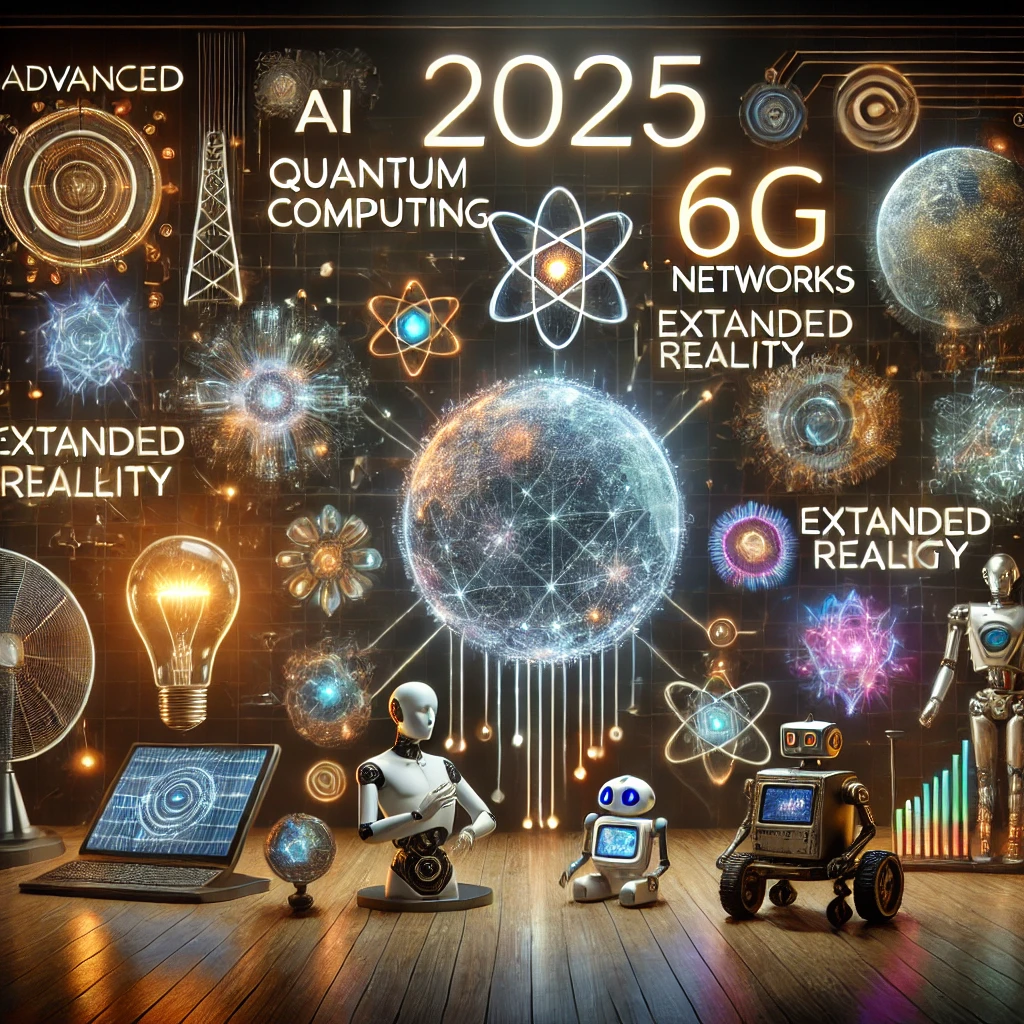Introduction
As we venture into 2025, the technological landscape is poised for remarkable transformations. Innovations that once seemed futuristic are now on the brink of becoming integral to our daily lives. This article explores the top 10 technology trends set to revolutionize various sectors, offering insights into their development and potential impact.
1. Artificial Intelligence (AI) Evolution
Artificial Intelligence continues to advance, with the emergence of Agentic AI systems that autonomously plan and execute tasks to achieve user-defined goals. These systems promise a virtual workforce capable of augmenting human efforts across diverse fields. Gartner predicts that by 2028, at least 15% of day-to-day work decisions will be made autonomously through Agentic AI, Technology Trends 2025 up from 0% in 2024.
Implications of AI Evolution:
- Enhanced Productivity: AI systems can handle repetitive tasks, allowing humans to focus on complex problem-solving and creativity.
- Personalized Experiences: From personalized shopping to tailored healthcare, AI’s integration into daily life enhances user experiences.
- Ethical Considerations: The autonomy of AI systems Technology Trends 2025 raises questions about decision-making, accountability, and ethical guidelines.
2. Quantum Computing Breakthroughs
Quantum computing is making significant strides, with researchers achieving milestones in quantum supremacy. This technology leverages quantum bits (qubits) to perform complex calculations at unprecedented speeds, potentially transforming industries such as cryptography, optimization, and material science.
Potential Applications:
- Cryptography: Quantum computers could break current encryption methods, necessitating the development of quantum-resistant algorithms.
- Drug Discovery: Accelerating the analysis of molecular interactions to expedite the development of new medications.
- Financial Modeling: Enhancing the ability to model and predict market behaviors with greater accuracy.
3. 6G Networks and Hyper-Connectivity
Building upon the foundation of 5G, the development of 6G technology aims to offer even faster data transfer rates, lower latency, and seamless connectivity. 6G is expected to support new technologies such as real-time holographic communication, virtual environments, and AI-driven applications.
Impact on Communication:
- Real-Time Interactions: Facilitating instantaneous communication, enabling advancements in telemedicine and remote collaboration.
- Internet of Things (IoT) Expansion: Supporting a vast network of interconnected devices, leading to smarter cities and homes.
- Enhanced Virtual Experiences: Enabling high-quality virtual and augmented reality applications for entertainment and education.
4. Advanced Robotics and Automation
The field of robotics is experiencing a surge in innovation, with the development of polyfunctional robots capable of performing multiple tasks across various environments. These advancements are set to revolutionize industries by improving efficiency and reducing human error.

